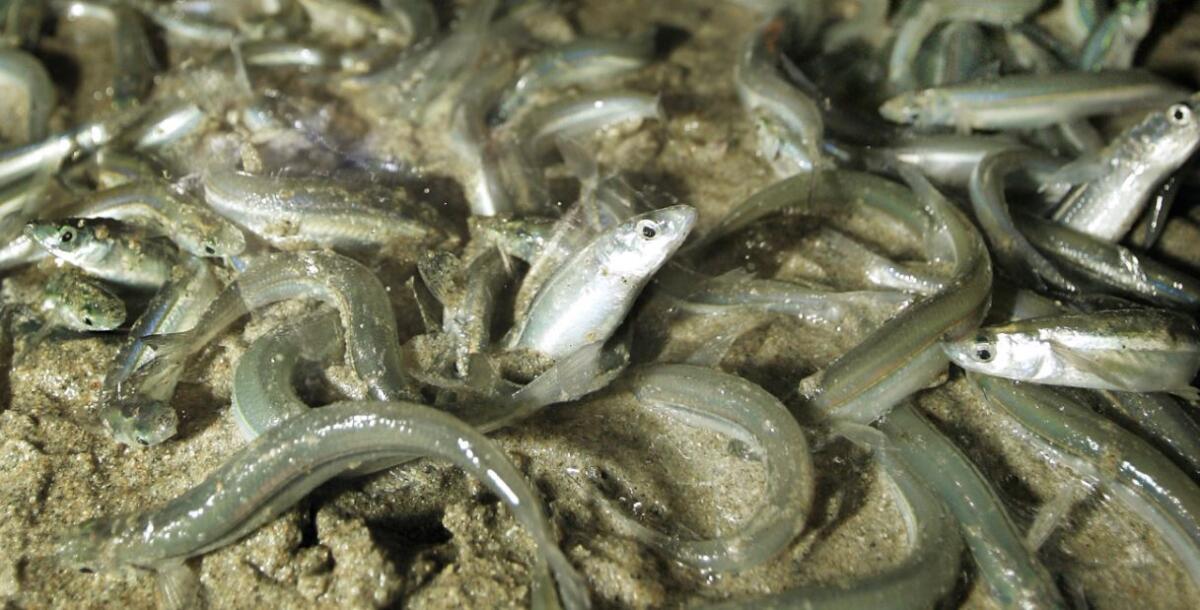Mystery tar balls could affect Southern California’s beloved grunion

A file photo shows grunion spawning in Long Beach during a run.
Mysterious tar balls washing ashore in Southern California have not only forced the closure of several beaches, but officials say they could now have an effect on mating patterns of the beloved grunion.
The California Office of Spill Prevention and Response says it will cease its tar ball cleanup efforts at night to minimize the effect on grunion when the species’ spawning runs occur. Crews were advised to minimize “disturbance to the sand as much as possible during the grunion run period.”
“Tar balls on beaches in Santa Barbara, Ventura, Los Angeles and Orange counties have the potential to impact beach and near-shore animals including California grunion,” the office said.
The pancake-sized balls of petroleum product began washing ashore last week. It is unclear if the tar balls are linked to the May 19 oil spill that released as much as 101,000 gallons of crude in Santa Barbara County.
Grunion spawning started Tuesday and is expected to continue until Friday.
The small, slippery fish leave the ocean at night to spawn on sandy beaches for consecutive nights during the spring and summer. Spawning usually occurs on full and new moon nights for several hours after high tides.
Female grunion can lay up to 3,600 eggs, which are deposited during high tide and incubate in the sand during low tide. The eggs hatch about 10 days later.
Grunion in Southern California are usually 5 to 6 inches long.
According to the Department of Fish and Wildlife, grunion are losing spawning habitat due to beach erosion, pollution and harbor construction.
For breaking news in California, follow @VeronicaRochaLA
More to Read
Sign up for Essential California
The most important California stories and recommendations in your inbox every morning.
You may occasionally receive promotional content from the Los Angeles Times.









